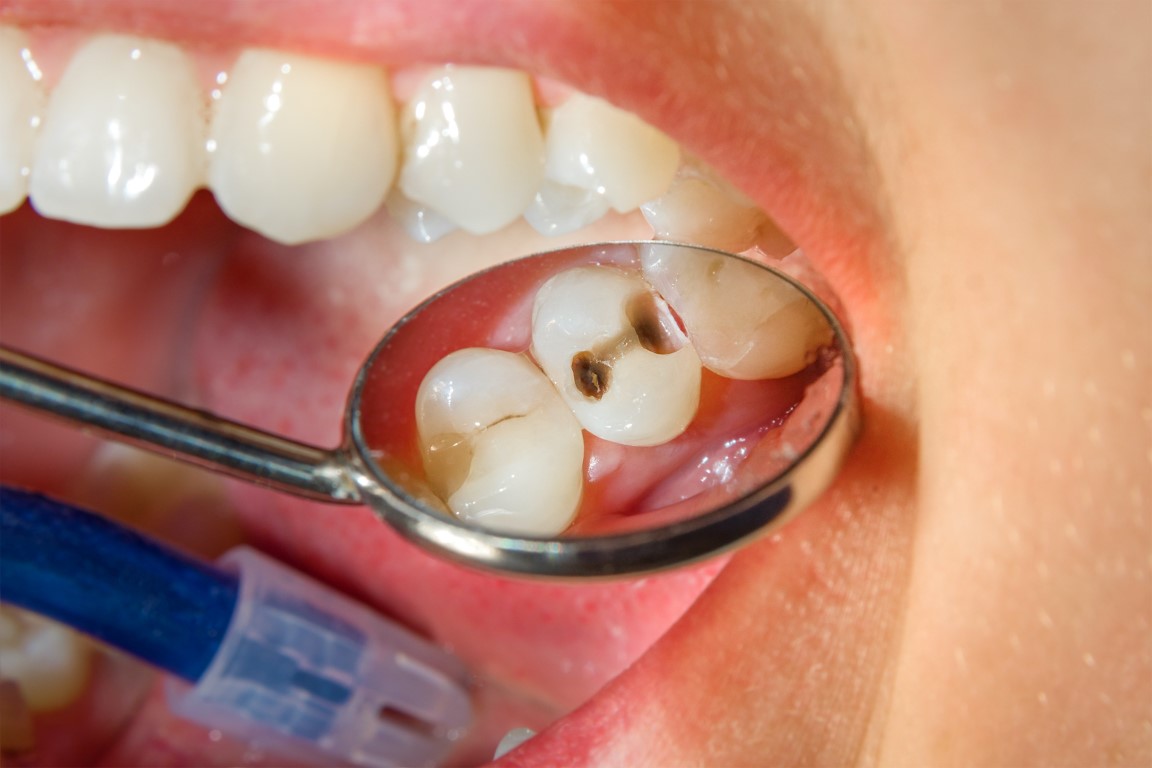Oral bacteria are responsible for the most common mouth infections present in both adults and children. They include tooth decay, viruses, and gum related disease. Most of these common infections are treatable with good hygiene and can last for a few days or weeks. However, other dental infections can last for more than years and are most common in adults than in children.
Dental Caries
They are the most common health problems globally and are as a result of tooth decay. They occur when bacteria in your mouth produce acids that soften the tooth's enamel's surface. This results in a small hole known as the cavity. If left untreated, the cavity can prolong and result in infection, pain, and eventually tooth loss.
Symptoms of tooth caries become visible and notable when the decay advances. Advanced tooth decay can cause high sensitivity to hot, cold, and sweet objects. If the decay prolongs, the tooth can become infected, which can form abscess or pus, resulting in fever, facial swelling, and pain.
Dentists normally treat tooth decay by filling the cavities. This is by removing the infected tooth tissue and filling the hollow section with a filling substance. Depending on your case, your dentist may opt to extract the whole tooth if the infection is spread throughout the tooth. This can play a huge role in preventing the infection from spreading to the entire jawbone.
Gum Disease
Gingivitis is a mild and common form of gum infection that causes redness, swelling, and irritation on your gum, precisely the gingiva. Failure to treat the condition can result in a more severe gum infection called periodontitis, resulting in tooth loss.
Gingivitis occurs due to poor oral hygiene, such as irregular brushing of teeth and lack of dental checkups. It is good to note that gingivitis is one of the primary causes of tooth loss in adults. Generally, most people do not always know if they have gum disease. There is a very high possibility that you can have gum complications without any symptoms. However, be always keen to notice the following changes as they can be symptoms of gingivitis: swollen and red gums, bleeding gums, loss of teeth, and pain when chewing.
To treat gum disease, you must always ensure that you practice healthy and proper oral hygiene. Learn to stop smoking if you smoke and deeply clean your teeth. You can also opt for other medical treatments such as surgery and antibiotic medication.
Oral Thrush
Oral thrush occurs when a natural yeast infection known as Candida albicans develops in the patient's mouth. Mostly it is common in toddlers and infants and causes yellowish or white bumps to appear on the tongue and cheeks.
Thrush is generally mild, and it's rarely life-threatening. However, this condition can easily spread other body parts if left untreated in people with weak immune systems. During the first stages, patients may not show any symptoms of the infection. However, as the infection advances, patients may have yellow or white patches on their tongue and cheeks and burning sensation in the mouth. In severe cases, the condition can affect the esophagus, which can result in difficulty in swallowing.
Herpangina
Herpangina is a common disease that affects children below the age of ten during the fall and summer seasons. The viral illness is caused by enteroviruses, which affect the gastrointestinal tract and later spreads to the other body parts.
Generally, the body produces antibodies to help fight this infection. Children under the age of ten lack the appropriate number of antibodies to help fight the virus, increasing their chance of getting infected. Patients exposed to the virus experience sore throat, headache swollen lymph glands, neck pain, and appetite loss. However, it’s good to note that the symptoms show two days after getting infected.
Canker Sores
Canker sores are small wounds that develop on the tissues of your mouth. Normally, the aphthous ulcers develop on the base of your gums, and they do not form on the surface of the lips. Patients suffering from this condition always have a hard time when eating as the sores tend to be painful and uncomfortable.
Although the sores are not contagious, they tend to wash away on their own within two weeks. However, if you experience a painful and large canker sore, it's advisable to visit us at the Upper Hunt Club Dental Centre in Ottawa for more medical attention. If you have any questions or would like to book an appointment, contact us today!













